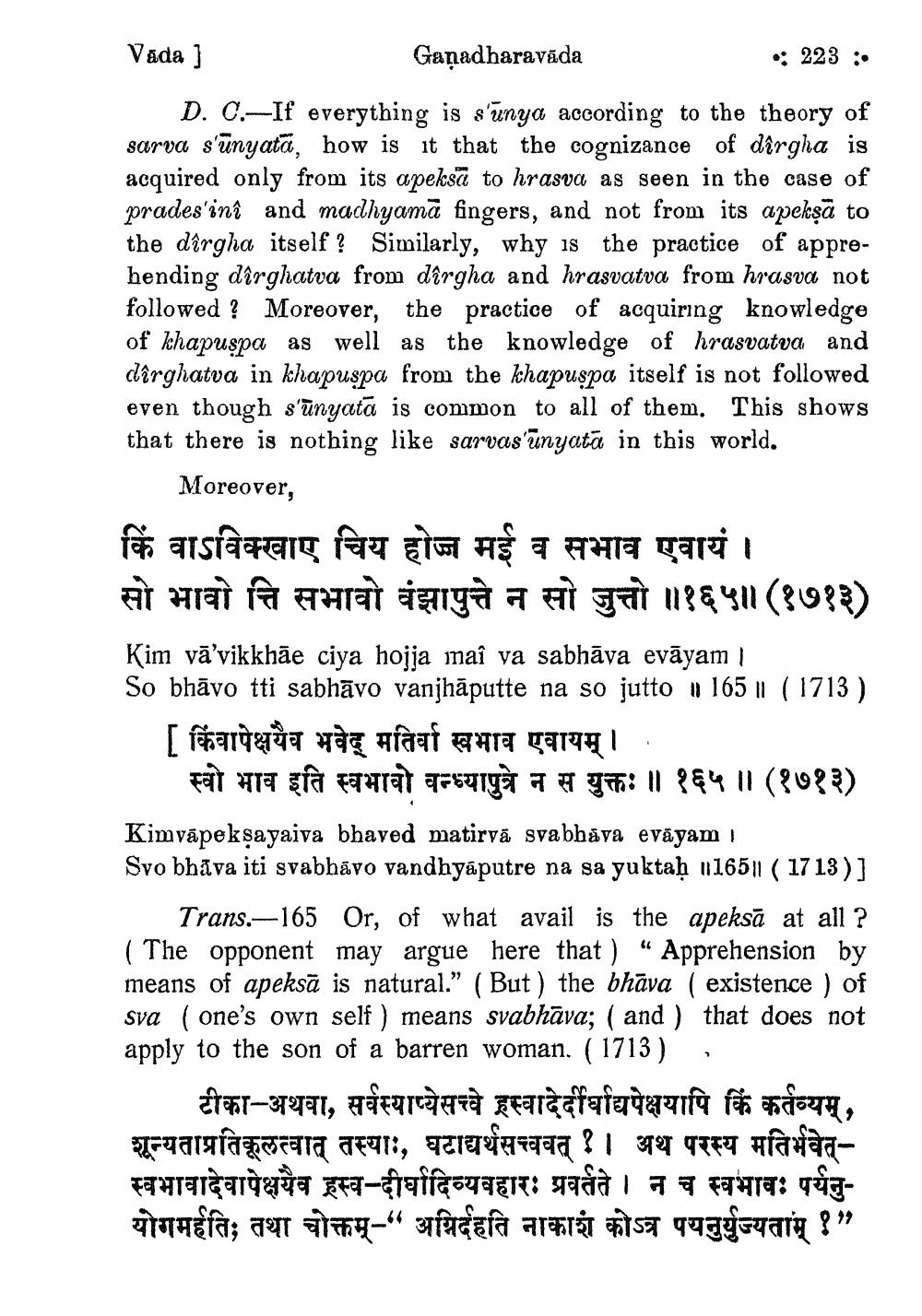________________
Vada ]
Gañadharavāda
.: 223 :.
D. C.-If everything is s'ünya according to the theory of sarva s'ünyata, how is it that the cognizance of dirgha is acquired only from its apeksa to hrasva as seen in the case of prades'inî and madhyamā fingers, and not from its apeksā to the dargha itself ? Similarly, why is the practice of apprehending dîrghatva from dîrgha and hrasvatva from hrasva not followed ? Moreover, the practice of acquiring knowledge of khapuspa as well as the knowledge of hrasvatva and dîrghatva in khapuspa from the khapuspa itself is not followed even though s'ünyatā is common to all of them. This shows that there is nothing like sarvas'ünyata in this world.
Moreover, किं वाऽविक्खाए चिय होज मई व सभाव एवायं । सो भावो त्ति सभावो वंझापुत्ते न सो जुत्तो ॥१६५॥ (१७१३) Kim vā’vikkhāe ciya hojia maî ya sabhāva evāyam | So bhāvo tti sabhāvo vanjhāputte na so jutto # 165 11 ( 1713 ) [किंवापेक्षयैव भवेद् मतिर्वा स्वभाव एवायम् । .
स्वो भाव इति स्वभावो वन्ध्यापुत्रे न स युक्तः ॥ १६५ ॥ (१७१३) Kimvāpekşayaiva bhaved matirvā svabhāva evayam Svo bhava iti svabhavo vandhyaputre na sa yuktah ॥165॥ ( 17 13)]
____ Trans.-165 Or, of what avail is the apeksa at all ? ( The opponent may argue here that ) “ Apprehension by means of apeksā is natural.” ( But) the bhāva ( existence ) of sva ( one's own self ) means svabhāva; ( and ) that does not apply to the son of a barren woman. ( 1713) ।
टीका-अथवा, सर्वस्याप्येसत्त्वे इस्वादेर्दीर्वाद्यपेक्षयापि किं कर्तव्यम् , शून्यताप्रतिकूलत्वात् तस्याः, घटाद्यर्थसत्त्ववत् ? । अथ परस्य मतिर्भवेत्स्वभावादेवापेक्षयैव इस्व-दीर्घादिव्यवहारः प्रवर्तते । न च स्वभावः पर्यनुयोगमर्हति; तथा चोक्तम्-" अग्निर्दहति नाकाशं कोऽत्र पयनुयुज्यताम् १"




